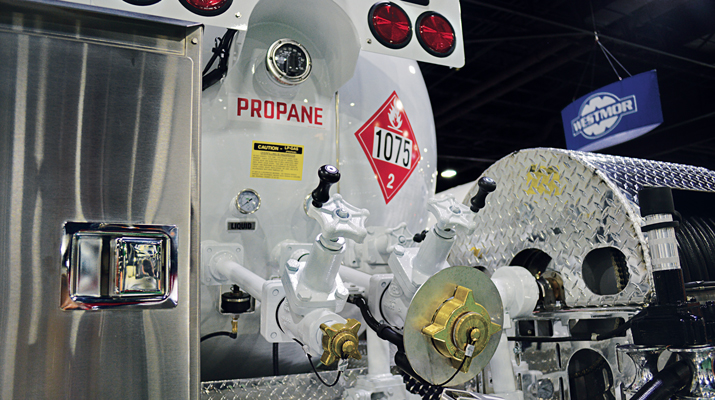Debunking propane supply myths
I hope you’ll agree that one of the most exciting aspects of our industry involves the commodity side of the business and its unpredictability of both disruptions in supply distribution and wholesale propane price spikes.
There is an almost mystical aspect of propane supply – because of the complicated underlying dynamics that drive the uncertainty of this commodity – that creates false assumptions or myths that often become a part of how we manage our supply plans. Let’s try to debunk some of these top supply myths.
Myth: You should contract with as many suppliers as possible because it will improve your supply security. If you shouldn’t put all of your eggs in one basket, then why not use as may propane suppliers as possible?
Fact: It is best to have a smaller, very select group of supplier partners.
I’ve seen retailers spread their propane supply purchases among 10 or more suppliers. If you do, none will be in a strong position to perform for you when things get tough. In times of the most extreme tight supply, most suppliers will focus on the core of their customer base, not the fringe or small percentage customers.
Consider developing a few strong supply relationships in which your propane supplier truly understands what is important to you. A strong argument can be made in special circumstances for a single supplier relationship.
Myth: Haggle for every nickel as you negotiate your propane supply needs. Propane is a commodity bought and traded on the open market; every tenth of a cent is worth fighting for.
Fact: It is best to negotiate hard for what is important, but don’t haggle over nickels.
The essential elements of a good propane supply plan involve the supplier and the retail buyer developing a mutual understanding about demand volumes, storage needs, production schedules and distribution. How both parties adjust as the year unfolds – with the uncertainty of the weather and other factors – depends a lot on the depth of the relationship between them.
During the course of a year, both parties will need to address unexpected issues that arise. Haggling with your supplier for every nickel sends a message that he cannot possibly meet your expectations. You may chase away some fine suppliers if you come across as an unreasonable negotiator.
Myth: You can ignore the issues that are important to your suppliers. There are plenty of suppliers willing to take your business, so you can work your current suppliers hard, knowing that others will step in if you run them off.
Fact: Intelligent buyers understand the key issues that are important to their supply partners and use it to their advantage. There is a finite list of supply companies that can do a great job for your business. By demonstrating an understanding of what is important to them you can begin to gain favor with the suppliers you rank highest. You can also gain valuable information that will be useful in your negotiations.
Myth: Wholesale propane prices are always lower in the summer.
Fact: The last 10 years have seen a number of pricing trends that caused the price of gallons bought between May and August to be above those bought from November to March. Check your records for years 1993, 1997, 1998 and 2001. Predictable seasonal wholesale prices haven’t been in place for years.
Myth: It is possible to pick when propane prices are at their lowest. A handful of industry experts actually have the answers, and that as a buyer, I need to tap into the knowledge source.
Fact: Luck aside, picking propane prices cannot be done on a year-in, year-out basis.
I believe this myth represents the most delusional quirk of the general population of propane professionals. Unfortunately, it is deeply ingrained into the thinking of many otherwise bright and experienced propane people working for companies both large and small.
No single individual or company can consistently predict the general market trends of propane commodity prices. Much money has been lost on this futile pursuit in our industry, and propane “experts” are not immune. Buyers who truly understand this fact have moved on to focusing instead on the essential needs of their propane supply and inventory risk management plan. This group will have year-in, year-out lower propane product costs and a lower risk in managing their propane inventories.
Carl Hughes is vice president of business development for Inergy LP. He can be reached at 816-842-8181 or by e-mail at Chughes@InergyServices.com.
















